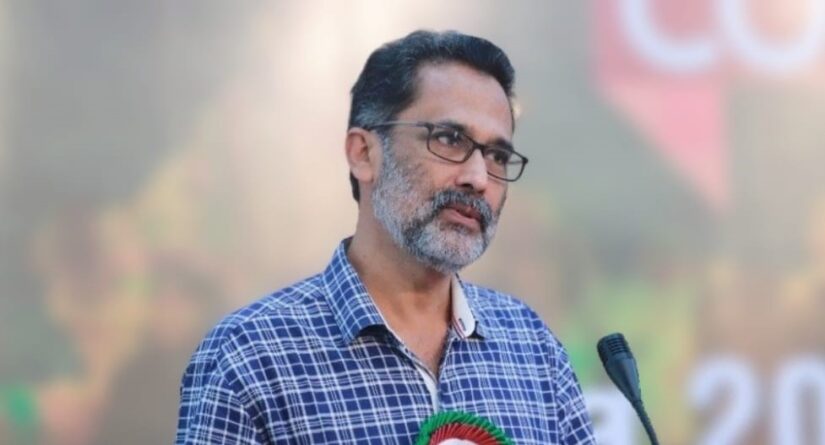Moving Ahead with Empowerment
Translation of the interview of Empower India Foundation Chairman, Mohammed Raphy by Thejas Malayalam Fortnightly
The word empowerment is often misinterpreted in many ways. Can you comment on that?
The term social empowerment is not properly understood often. Development and sustainable development used to be on the government’s agenda. However, social empowerment becomes possible when equal rights, justice, equal opportunities and an environment where the identities don’t face any challenges exist along with development and sustainable development. The discrimination that the educated and high-salaried government employees from the Dalit community face proves that development hasn’t empowered that community.
What was the context and motivation for coming forward with such a project?
It was during 2013-14 that such a concept evolved. It was in the backdrop of the discussions that took place in the society following the Sachar Committee findings and the appointment of a committee by the central government under Prof Amitabh Kundu to study the impact of the government schemes post-Sachar. It was a good idea to deeply analyse it by the marginalised backward communities themselves. India 2047 was suggesting a long-term project that can be taken up by the affected sections themselves parallelly with the efforts of the government.
Justice Sachar portrays the backwardness and the issues of equal opportunities that the marginalised sections including Muslims face in different fields. There is a long list of issues that starts from the backwardness in the fields of education, health, and economic status and continues to lack of equal justice and equal opportunities.
What is Empower India Foundation? Can you explain its project aiming at 2047?
Empower India Foundation is an NGO working for social service with its headquarters in Bengaluru. Its leadership is personalities from different states of India who have excelled in various fields. India 2047 project is the flagship project of Empower India Foundation. It envisages a milieu of equal opportunities and growth for all citizens of the country by0 the beginning of the second century of independence.
The project is in its second phase, right? What are the activities going on now?
Since 2021, the project management department has been focussing on research works and collaborating with other NGOs. Chapters are being formed locally at present. There’s a group in the team that publishes studies as research articles and books. We released a Supplementary Edition of the India 2047 Project Document on 22nd May 2022. A part of this supplement is the lessons learned during the first phase; and the analysis of the contemporary Indian situation. Data tables have been updated as well.
Do you have any concerns about the future 2047 project in the context of the worsening situations in contemporary India?
The present Indian scenario is one that engenders concern in anybody who aspires good. Long-term projects should be able to overcome such challenges. Empower India Foundation moves ahead focussing on its goal by turning challenges into opportunities. “Allah will not change the condition of a people as long as they do not change themselves”, is what drives us.
Have you noted that the timeline or the 2047 period fixation has been discussed at large? Why did you choose such a time period?
Empower India Foundation is not interested in the discussions based on media fascination. All long-term projects require short-term sub-projects. This is to analyse the progress and make changes accordingly and address the contemporary issues. The first phase of the project was from 2016 to 2020. Now it has entered its second phase.
What are the main areas of intervention of the 2047 project? What changes do you intend to make in these areas?
Most of those 11 focus areas of the India 2047 project are from the development models of the governments and the UN. This project puts forward the scopes of self-empowerment for the marginalised sections. Education, health, economy and women empowerment are the key areas that the project focusses. The ultimate aim of the project is to uplift the marginalised sections to the level of the privileged sections of society.
Any comments on the recent controversies regarding the 2047 project document?
Controversies are common in our society. It is the channel ratings and the politics of people owning the media that influence these controversies. It was the late Justice Rajinder Sachar who released the India 2047 Project Document on 15th August 2016 August at the India Habitat Centre, Delhi. Since then, we have been distributing the document to academicians and activists across the country. Its pdf version is freely available to all on Empower India Foundation’s official website. We have nothing to say to those who claim that this document has been kept secret and is found and brought out now only. The data tables in the project document are taken from government statistics. The historical references in the articles are from established historical resources.
The actual problem is the cries of ‘imminent danger’ from those sections who have undeservedly kept these opportunities in their possession when demands for equal opportunities are raised. Who is afraid of equal justice? These ideas have been enshrined in the Constitution and approved by Indian society always. Our focus is not on answering such people, but to go ahead with our objective by overcoming these challenges. We can’t wait for the waves to be calm to let the ship sail!
Translated by: Minha Fathima

